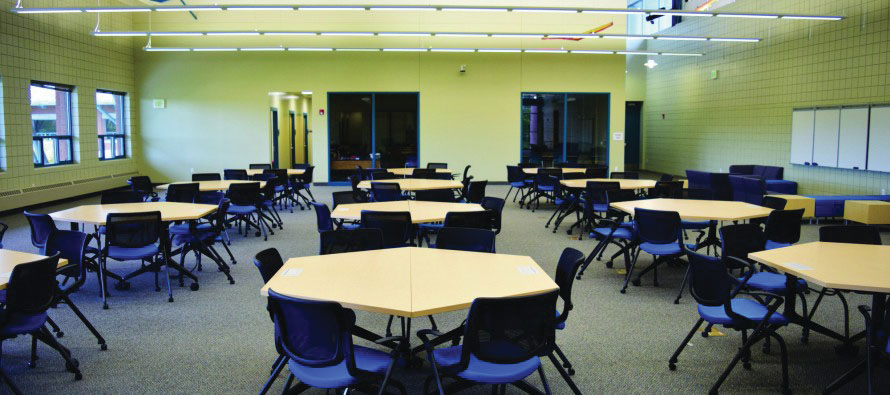Science and writing: Writing Center seeks to help science students
The English Writing Center is collaborating with the STE2M Center and the College of Science to provide tutoring in what is called the Science Writing Center.
“In the Science Writing Center, we’re going to be able to address very specific types of writing for the sciences, which is going to be a boon to science writing students and especially the professors,” said Star Coulbrooke, director of the English Writing Center.
Michela Schulthies, co-coordinator of the newly formed Science Writing Center, said science papers tend to have a more rigid structure and professors often have specific criteria for their students to follow.
“In English, we tend to give more general advice about how to write well overall, rather than catering to specific needs of individual professors,” Schulthies said. “So when we have our clients come in, we make sure that they tell us as much as they can about their professors so we don’t give them the wrong advice.”
Schulthies said a major difference between the structure of English and science papers is the use of passive voice.
“In English, we try to avoid that most of the time,” she said. “But in the sciences, the emphasis can be on the experiment rather than the person doing the experiment, and so passive voice becomes an effective tool to do that.”
Coulbrooke said the College of Science and the STE2M Center are asking individual science departments to send their students to tutoring sessions and recommend those who are good at writing to become tutors themselves.
“The training that we do for the tutors in the Writing Center will go on, but then we will also have specific kinds of training coming from the sciences,” Coulbrooke said. “So the tutors that we get recommended, the people that we hire from the sciences, will help to train the other tutors. They’ll train each other.”
Not all of the tutors come from a science department. One of them, Madi Neuner, is studying English. She said before the school year started, they attended a training meeting, where they learned what to expect.
“Honestly, I think the best training that we get for any sort of tutoring job like this is just hands-on experience,” Neuner said. “Anytime someone comes in, we’re always learning something new.”
Schulthies said the most difficult part about the center has been getting the word out about it and gaining students’ interest.
“All of the science faculty members who know about it so far are really excited about it,” Schulthies said. “But I guess it’s harder to get that excitement into the students.”
Schulthies said she hopes science professors put the center in their syllabi. She said it could help them because they may not want to dedicate their time instructing students how to write science papers.
“I think a lot of them expect their students to know how to write good lab reports, know how to put their research together,” Schulthies said. “And they don’t have time to give them a writing lesson.”
Schulthies said students do not seem to get the training they need for science papers because every student only gets mandatory writing instruction from the English 1010 and 2010 courses.
“There’s only the one type of class,” Schulthies said. “It’s hard to get all of the specializations that they need to accommodate everyone.”
Schulthies, who recently got her Master’s degree in English, said the center started from a conversation she had during her undergraduate years with a colleague named Samantha Latham. Schulthies told Latham it would be nice if there were some tutors who specialized in the sciences so students could get help from people who had backgrounds in both that and writing.
“Unbeknownst to me until three semesters later, she took that idea and ran with it and got all of this set up,” Schulthies said.
Anyone who wants to come into the Science Writing Center can find it on the second floor of the STE2M Center, Monday through Friday from 5 to 7 p.m.
— christophercampbell21@gmail.com
@ChrisCampbell02

